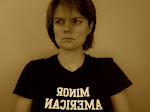e. language:
There is language here as there is code, but it is unwritten and unspoken language, an unmarked language. We have no access to what this language is except by way of the word language [and a table cannot speak nor write, but be spoken over and written upon] and the narrator’s belief in language. What can be said in regards to the language is only that it took place and is still to come.
f. arbitrary signs
What is significant about this particular phrase at the conclusion of such an odd introduction is the fact that the word arbitrary involves choice and preference: individual discretion. The arbiter has unlimited power and control over these signs, but who is the arbiter in this instance? The reader or the writer of the signs? The reader has ‘ascertained’: the reader has determined how to read, but does this empower the reader or the writer? If the table is indeed the arbiter, then there is quite possibly no end to the rapping (and maybe this table is indeed the spirit-rapper, but here I am jesting), but, can the arbiter be held singly?
Having discussed in more depth the particulars of these words and the thoughts evoked, let us continue with the text:
The table goes on to communicate that the spirit-rapper is “on the eve of gratifying [his] most secret and ardent wish… the knowledge and power [he] craved,” he only must do something to embrace the spirit of the age, and he would “make [himself] the Messiah of the nineteenth century” (41). Our narrator is told that he can only gain the knowledge he seeks if he does something worthwhile. He sets himself to world reform through philanthropy, and remembering a certain Priscilla from his youth, goes to her for a lesson in world reform. This life that he chooses to live, as it will soon become apparent, is a life he is not to live.
[Maybe this is not the best way to express my thoughts about de Man’s essay and Brownson’s tale. What I really want to do is what de Man does: a close reading, that involves a lot of questions, and maybe a few answers. I will start again:]
In Brownson’s The Spirit-Rapper, An Autobiography, the question of identity, in particular the question of authorship, is immediately rendered by the use of the word: autobiography. To whom does this story belong? The spirit-rapper? The author? The word autobiography combines author with writer with narrator. The title, or name if you prefer, that is in the closest proximity: set as “author” of the autobiography, is “spirit-rapper.” So, this book is then an autobiography of a spirit-rapper written by the spirit-rapper. One would gather, however, in the preface to this text, Brownson (who is the real writer / author of the text) that:
It is not a novel; it is not a romance; it is not a biography of any real individual; it is not a dissertation, an essay, or a regular treatise; and yet it perhaps has some elements of them all, thrown together in just such a way as best suited my convenience, or my purpose. (1)
This text then, raises important issues regarding genre and identity: why is this an autobiography that “is not a biography of any real individual?” Can there be an autobiography without biography? Where is the emphasis placed, is it not a biography or simply not a biography of a ‘real’ individual? What does it mean to write the biography of an unreal individual? Brownson further problemetizes /illustrates the notion of identity by giving no name to his narrator. Our only way of referencing the narrator, who is our only guide through this strange world of Spiritists, Unitarian Ministers, social reformers, and devils, is by way of the term spirit-rapper, or for our purposes: narrator. Both being words describing specified action.
To state: This text is not a biography, and place in the title of said text the word ‘autobiography,’ is curious. What meaning is there? It is more than simply an erasure, a cross-cancellation as in mathematics. Must there be a desire, on the part of the author, to call attention to genre? If so, then there is also a desire on the part of the text to be cross-genre. And, finally, a desire, on the part of myself as a reader, to understand the importance of not-biography. To be a not-biography is to be a not-history of someone. But to do so, to be so, can never erase what it is not. The story, the not-story, is very much a story, and a history, while being very much a not-history.
Subscribe to:
Post Comments (Atom)


No comments:
Post a Comment